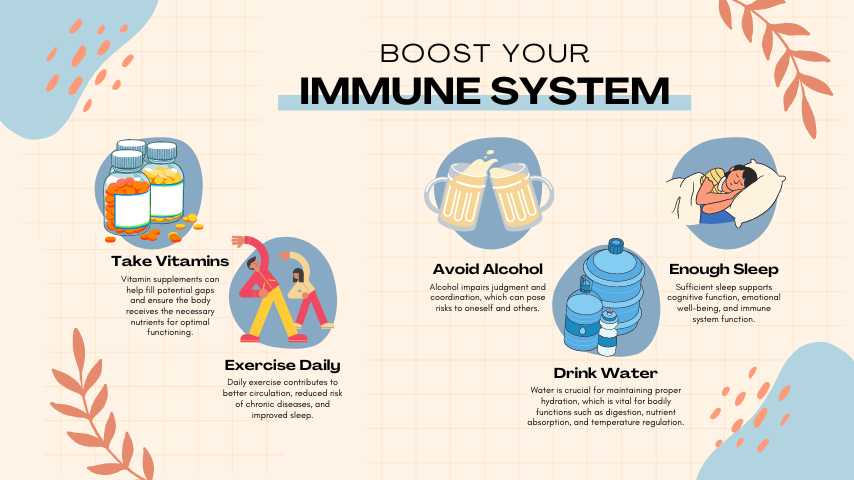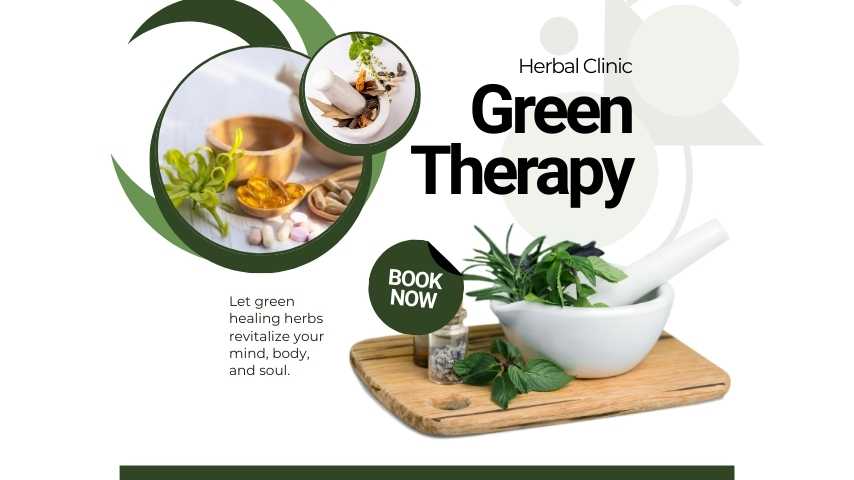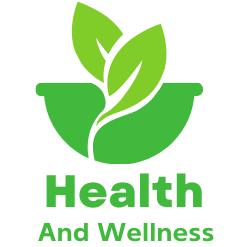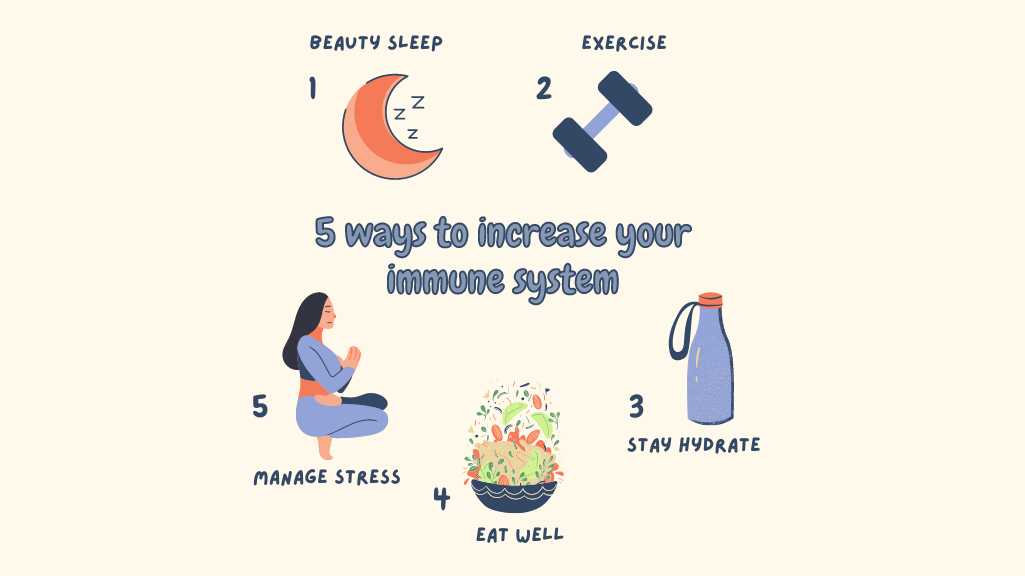Introduction: Natural Immune System Boosters
The immune system is our body’s natural defense against hazardous infections, and it plays an important part in overall health and wellness. Understanding how to improve its function naturally is critical for building resilience to illnesses and sustaining long-term health.
Table of Contents
Key Components of the Immune System
Before getting into specific immune boosters, it’s important to understand the basics of our immune system. This complex network of cells, tissues, and organs, which includes both innate and adaptive components, works relentlessly to detect and eliminate invading pathogens, ensuring our survival and good health.

Factors Affecting Immune Health
A number of environmental and lifestyle factors have a substantial impact on immune function. On the one hand, immune resilience can be strengthened by regular physical activity, healthy eating, good stress management, and adequate sleep. On the other hand, immune resilience can be weakened by poor dietary choices, sedentary lifestyles, long-term stress, and exposure to environmental pollutants.
Natural Immune System Boosters
Dietary Factors
- Vitamin-Rich Foods: meals high in immune-boosting vitamins, such as vitamin C (found in citrus fruits and bell peppers) and vitamin D (obtained via sunlight and fortified meals), play an important role in strengthening our immune systems. These vitamins are required for the formation and function of immune cells, allowing them to efficiently tackle infections.
- Antioxidant Powerhouses: Berries, leafy greens (such as spinach and kale), and antioxidant-rich almonds help to counteract oxidative stress, boosting immune function and lowering inflammation. Antioxidants protect cells from harm and promote overall health, helping to build a strong immune system.
- Essential Nutrients: Adequate protein consumption from lean meats, legumes, and dairy, as well as healthy fats from avocados and nuts, helps immune cells grow and operate properly. Protein is essential for the formation of antibodies and immunological cells, whilst healthy fats give energy and help cells function.
Lifestyle Changes
- Regular Exercise: Moderate physical exercise increases circulation and improves immune cell mobility throughout the body, lowering the risk of infection and chronic diseases. Exercise also improves general health and helps to maintain a healthy weight, which aids immunological function.
- Quality Sleep: Aim for 7-9 hours of restful sleep per night to improve immunological response. Sleep deprivation impairs immune function, leaving the body more vulnerable to infections. Adequate sleep improves immune function by allowing the body to repair and replenish cells while also regulating immunological responses.
- Stress Management: Include stress-relieving activities like meditation, deep breathing exercises, and yoga in your everyday routine. Chronic stress impairs immune defenses, therefore good stress management is vital. Stress reduction tactics enhance relaxation and reduce inflammation, so improving immunological health.
Herbal Supplements
- Probiotics: These helpful bacteria found in yogurt and supplements support a healthy gut microbiota, which is essential for strong immune function and overall health. Probiotics improve gut barrier function and immunological responses, lowering the risk of infection and promoting digestive health.
- Elderberry: Elderberry supplements or syrups, known for their antiviral characteristics, may help to minimize the severity and length of cold and flu symptoms, thereby maintaining immune health during seasonal fluctuations. Elderberry includes antioxidants and chemicals that limit viral replication, hence boosting immune response to viral infections.
- Echinacea: Echinacea pills, which are well-known for their immune-boosting properties, may help decrease the duration of respiratory infections while also supporting immune system function. Echinacea stimulates immune cells and improves immune responses, which reduces the severity of symptoms and speeds up recovery from illnesses.
Practical Tips for Boosting Immunity
Including these immune-boosting foods and lifestyle choices in your daily routine will greatly increase your immune system:
- Stay Hydrated: Maintain proper hydration with water and herbal teas to promote immune function and general health. Hydration promotes immune responses by promoting the movement of nutrients and the elimination of toxins from cells, hence preserving immunological function.
- Vaccination: Prioritize vaccines against preventable diseases for added protection, especially during flu season and travel. Vaccines induce immune responses to specific pathogens, providing immunity against infectious diseases while limiting transmission.
- Consult Healthcare Professionals: Seek personalized guidance from your healthcare professional, especially if you have chronic diseases or are undergoing medical treatments that influence your immune system. Healthcare providers can make personalized recommendations and therapies to boost immune function and manage underlying health issues.

Conclusion
Your immune system can be naturally strengthened by taking a holistic strategy that includes nutrient-dense foods, healthy lifestyle choices, and tailored supplements. Empower yourself with evidence-based practices for boosting immunity and protecting your health year-round.
(FAQs) About Natural Immune System Boosters
1. What are the best vitamins and minerals for immune support?
A: Vitamin C and D are among the most important vitamins for immune support. Vitamin C-rich foods, such as citrus fruits and bell peppers, aid to improve immune cell function. Vitamin D, derived from sunlight and fortified foods, is crucial in regulating immune responses and decreasing inflammation..
2. How does regular exercise contribute to immune health?
A: Regular exercise boosts immunological health by improving circulation, allowing immune cells to move freely throughout the body. Exercise also decreases inflammation and improves overall health, resulting in a stronger immune system that can better fight infections.
3.
Are there special foods that can help increase my immunity?
A: Yes, numerous foods have been shown to strengthen the immune system. Berries, leafy greens (such as spinach and kale), nuts, and seeds are high in antioxidants, which fight oxidative stress and boost immune function. Incorporating lean proteins and healthy fats into your diet also supplies vital nutrients for immune cell formation and function.
4. What role do probiotics play in supporting immune function?
A: Probiotics are beneficial bacteria found in yogurt, kefir, and supplements that help maintain a healthy gut microbiota. A balanced gut microbiome is critical for immunological health because it regulates immune responses, decreases inflammation, and improves the body’s ability to fight infections.
5. Can herbal supplements like elderberry and echinacea really boost my immune system?
A: Yes, herbal supplements such as elderberry and echinacea have been investigated for immune-boosting properties. Elderberry is known to have antiviral qualities, which may help reduce the severity and duration of cold and flu symptoms. Echinacea activates immune cells and improves immunological function, especially during periods of heightened susceptibility to respiratory infections.Yes herbal supplements such as elderberry and echinacea have been investigated for immune-boosting properties. Elderberry is known to have antiviral qualities, which may help reduce the severity and duration of cold and flu symptoms. Echinacea activates immune cells and improves immunological function, especially during periods of heightened susceptibility to respiratory infections.

